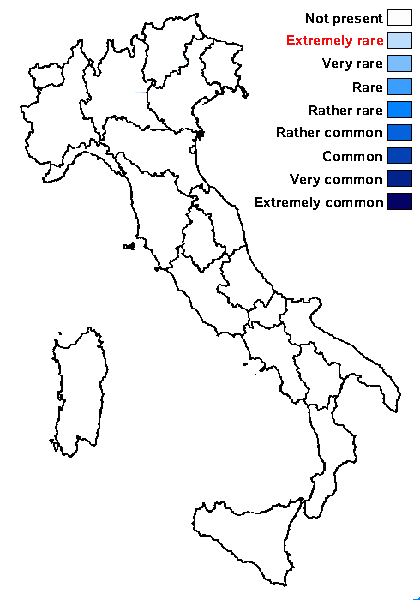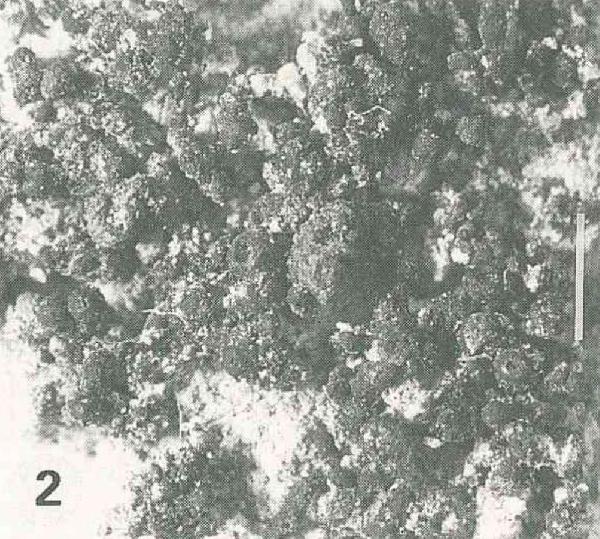Paulia salevensis (Müll. Arg.) M. Schultz
in Schultz & Büdel, Mycotaxon, 84: 22, 2002. Basionym: Synalissa salevensis Müll. Arg. - Mém. Soc. Phys. Hist. nat. Genève, 16, 2: 421, 1862.
Synonyms: Peccania salevensis (Müll. Arg.) Forssell
Distribution:
Description: Thallus fruticose, olive-black, at least partially grey-pruinose, gelatinous when wet, homoiomerous, consisting of erect, 2-3 mm tall, at first cylindrical, then club-shaped (especially when fertile) branches. Hyphae forming a loose network around the cyanobiont cells, which are penetrated by haustoria; cortex absent. Apothecia terminal, at first immersed and punctiform, then adnate, with a black, urceolate to flat disc, and a rather thick, granulose thalline margin. Proper exciple not developed; hymenium colourless, non-amyloid; paraphyses sparingly branched and anastomosing; hypothecium colourless. Asci 8-spored subcylindrical, without apical amyloid structures, 65-70 x 16-18 µm. Ascospores 1-celled, hyaline, subglobose, 12-15 μm wide, thick-walled. Pycnidia rare. Conidia bacilliform. Photobiont cyanobacterial, chroococcoid, the cells surrounded by a yellowish (in the peripheral parts of thallus) gelatinous sheath. Spot tests: all negative. Chemistry: without lichen substances.Note: on steeply inclined surfaces of calciferous rocks with frequent percolation of water. The species is only known from the type locality at Mt. Salève (France) close to the Swiss border near Geneva; a second locality in Carinthia (Austria) needs reconfirmation (Nimis & al. 2018). For further details see Schultz & Büdel (2002). To be looked for in the Italian Alps.
Growth form: Fruticose
Substrata: rocks
Photobiont: cyanobacteria, coccaceous (e.g. Gloeocapsa)
Reproductive strategy: mainly sexual
On otherwise dry surfaces with short periods of water seepage after rain

Predictive model
Herbarium samples
Growth form: Fruticose
Substrata: rocks
Photobiont: cyanobacteria, coccaceous (e.g. Gloeocapsa)
Reproductive strategy: mainly sexual
On otherwise dry surfaces with short periods of water seepage after rain

Predictive model
| Herbarium samples |


